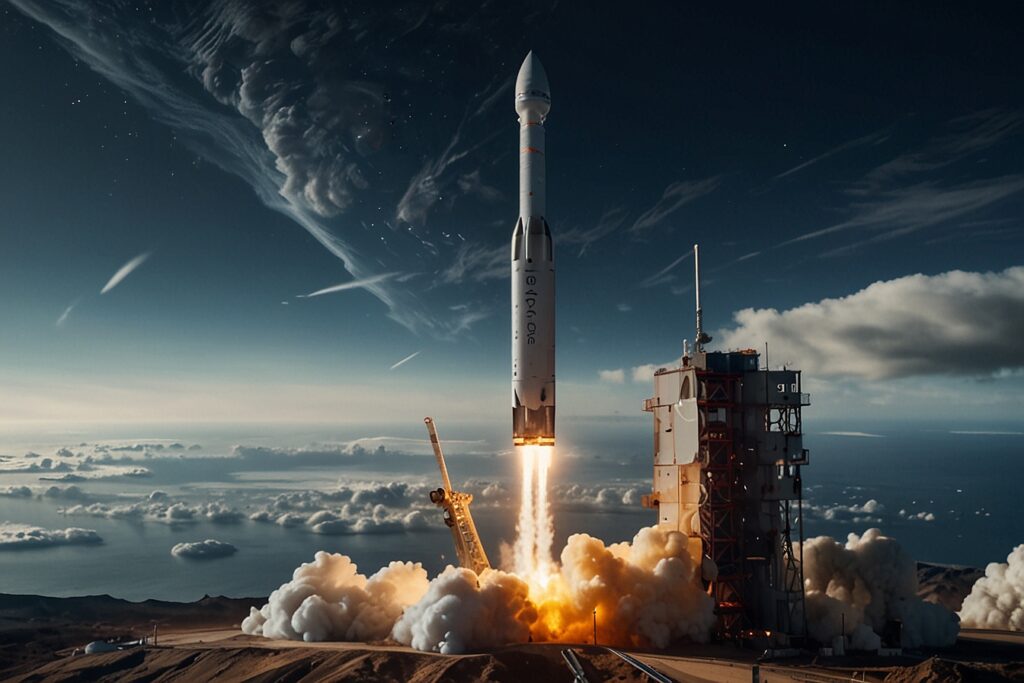
TL;DR:
- Amazon will launch 24 Kuiper satellites via a SpaceX Falcon 9 rocket early Wednesday.
- Despite their rivalry, Amazon and SpaceX have a three-launch deal inked in 2023.
- The launch pushes Amazon’s constellation to 78 satellites, with over 3,200 planned.
- Amazon faces a tight FCC deadline to deploy half of its constellation by July 2026.
- With delays at other launch partners, SpaceX is proving crucial to Kuiper’s rollout.
A Competitive Alliance in Orbit
In a move that underscores the shifting dynamics of the space economy, Amazon is turning to its chief competitor, SpaceX, to advance its satellite broadband ambitions. On Wednesday morning, SpaceX’s Falcon 9 rocket will launch 24 Project Kuiper internet satellites into orbit from Cape Canaveral Space Force Station.
This launch, designated KF-01, marks a critical milestone for Amazon’s constellation. Once complete, it will bring the total number of Kuiper satellites in orbit to 78, inching Amazon closer to its first-generation target of over 3,200 satellites in low Earth orbit (LEO).
The 27-minute launch window opens at 2:18 a.m. ET, and represents one of three missions SpaceX will undertake for Amazon under a contract signed in December 2023. (Source: TechCrunch)
Race Against the Regulatory Clock
Under its license from the U.S. Federal Communications Commission (FCC), Amazon must deploy at least half of its Kuiper constellation—around 1,600 satellites—by July 2026. The deadline is part of a compliance milestone to ensure timely deployment of spectrum resources.
But Amazon’s challenges are not purely technical. The launch provider ecosystem is strained, and SpaceX remains the only consistently operational platform among Amazon’s contracted partners.
Launch Partners for Project Kuiper
| Launch Provider | Rocket | Current Status | Missions Completed for Kuiper | Source |
| SpaceX | Falcon 9 | Fully operational | Scheduled: 3 (starting July 17, 2025) | SpaceX |
| United Launch Alliance (ULA) | Vulcan Centaur | Operational | 2 launches completed | ULA |
| Arianespace | Ariane 6 | Delayed | 0 launches | Arianespace |
| Blue Origin | New Glenn | 1 launch completed, partial success | Next launch: Aug 15, 2025 | Blue Origin |
The SpaceX Deal: From Legal Tensions to Liftoff
Amazon’s decision to contract SpaceX followed a shareholder lawsuit that challenged its earlier exclusion of Falcon 9 from its initial launch contracts. At the time, critics argued that failing to consider the most flight-proven rocket in operation—SpaceX’s Falcon 9—was a breach of fiduciary duty, potentially influenced by the rivalry between Elon Musk and Jeff Bezos.
The December 2023 agreement reversed that stance, signaling a pragmatic shift in Amazon’s satellite strategy. (Read more on TechCrunch)
“Business pragmatism is winning out over personal rivalry,” said a commercial space analyst familiar with both companies. “Amazon knows that to meet the FCC deadline, reliability matters more than politics.”
Blue Origin’s Delays Create Strategic Pressure
Ironically, one of Amazon’s launch providers—Blue Origin—is also owned by Bezos. Its New Glenn rocket, intended to be a core delivery vehicle for Kuiper, has only launched once, with no booster recovery achieved. The next flight is tentatively scheduled for August 15.
Meanwhile, United Launch Alliance (ULA) has been Amazon’s most active partner to date, completing the first two Kuiper launches, including a successful mission in April 2025. Arianespace, however, has yet to launch any satellites for Kuiper due to ongoing delays with Ariane 6.
Competing with Starlink’s Head Start
Project Kuiper enters a satellite internet market that is already heavily saturated by SpaceX’s Starlink, which now boasts over 8,000 satellites in orbit and an expanding global customer base. (Starlink details via SpaceX)
Amazon’s Kuiper service is not yet publicly available, although internal documents suggest beta testing could begin in early 2026. The goal: provide low-latency broadband connectivity to underserved and remote areas—a mission similar to Starlink’s.
What’s at Stake
Amazon has already invested billions in ground infrastructure, antenna design, and satellite manufacturing to build out Kuiper. But to fulfill its vision, it must demonstrate:
- Timely deployment to avoid forfeiting its FCC license
- Reliable satellite performance to compete on par with Starlink
- A compelling consumer offering backed by Prime or AWS ecosystem advantages
With SpaceX now playing a key role in that roadmap, Amazon’s satellite business has taken an unexpected but necessary detour.






